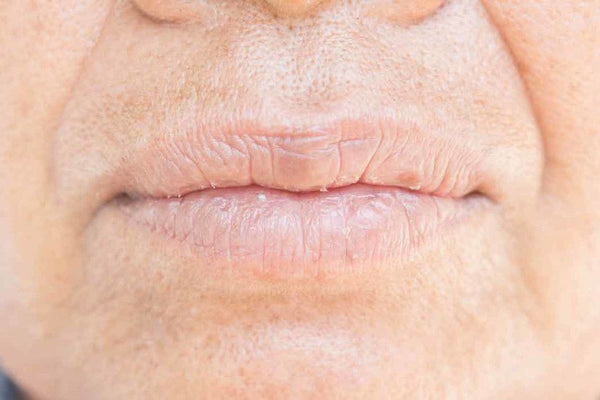If you are here, it is because you have already felt an important need to drink due to the lack of water in your body. Indeed, thirst is a neuroendocrine regulation mechanism that intervenes in the drinking behavior by "alarming" the body to respond to the need to drink. You will therefore have the impression of having a pasty mouth, which is usually a temporary disorder due to insufficient production of the salivary glands.
Here is a guide to help you understand everything about thirst and mushy mouth.
Explanations of the phenomena of thirst and pasty mouth
The sensation of thirst often appears during the night. It is linked to a number of factors such as the consumption of very salty or very sweet foods, a drop in blood pressure, but also fever, the taking of certain medications, stress, physical exercise, etc. It is the excessive and chronic thirst that is problematic. On the other hand, the sensation of pasty mouth is linked to a decrease in saliva secretion. This is called xerostomia. When there is a lack of saliva, the mouth is pasty and the tongue and throat can even sting a little. This symptom is often accompanied by a desire to drink: however, this is not always enough to solve the problem. A number of factors can explain dry mouth such as stress, aging, medication, poor hydration, oral problems or chronic diseases. Your dentist will help you assess the main causes.
Causes of thirst and mushy mouth
Aging
With age, the salivary glands produce less saliva and the sensation of dry mouth is permanent.
An episode of dehydration
In case of dehydration, dry mouth is accompanied by dry and cracked lips with a sensation of thirst. It gives way when the lack of water in the body is corrected.
Chronic diseases
Saliva secretion is sometimes decreased in the following situations
autoimmune diseases such as Gougerot-Sjögren syndrome, responsible for dry eyes, mouth and genital mucosa. This condition occurs mainly in women between 40 and 60 years of age, either alone or in association with other autoimmune diseases (rheumatoid arthritis, systemic lupus erythematosus, etc.),
The consequences of thirst and mushy mouth
The lack of saliva that causes thirst and pasty mouth is the most dangerous when it is chronic. Indeed, saliva no longer ensures its natural protection function against bacteria. This increases the risk of dental caries and gingivitis. It also increases the risk of injuries in the mouth, which causes a feeling of discomfort. If the discomfort becomes more and more important, the production of saliva is even more diminished. You will therefore have difficulty speaking or swallowing. Bad breath is common and so is the risk of fungus. In case of Sjögren's syndrome, eye discomfort will be present and you will feel a burning sensation in the eyes, itching and redness are frequent. In case of too much dryness, the cornea can even be the seat of an ulceration.
Tips to stop having a pasty mouth
1) Limit some of the things you normally consume
It is important to limit the consumption of acidic, spicy and very salty foods, but also alcohol and coffee which can hurt and give you a burning sensation in the oral cavity. It is therefore not recommended to consume them. You should also think about reducing your consumption of cigarettes because they have an effect on dry mouth.
2) Avoid medications that dry out your mouth
Some medications cause dry mouth. This is the case for example with antidepressants, anxiolytics, antihypertensives but also with antiarrhythmics, sleeping pills and antinauseants. The irradiation of ENT tumors (radiotherapy) can cause this phenomenon permanently. Some diseases such as Gougerot-Sjögren's syndrome* disturb the salivary glands and also lead to a multi-orificial dry mouth. You should therefore ask your dentist for advice, who may be able to substitute one treatment for another. He can also prescribe tests to check if the salivary glands are functioning properly. It is an autoimmune disease. The body produces antibodies that neutralize the glands that produce saliva, tears and other secretions.
3) Use natural remedies
For example, you can practice what is called bicarbonate water mouthwash. This will irrigate the oral cavity and prevent the occurrence of fungal infections. They should be used at least twice a day for 2 months. You can also be prescribed Jaborandi mother tincture. 20 to 30 drops 2 to 3 times/day for several months. However, it is important to know that the drug is contraindicated in case of glaucoma.
You should also avoid fluoridated toothpastes which aggravate the burns in case of dry mouth. In addition, you should avoid other mouthwashes that tend to acidify the mouth, which creates an environment conducive to oral thrush.
You can also brush your teeth with a sonic electric toothbrush. It is a toothbrush that offers an effective brushing of each tooth, in only 10 seconds but also of the gums. It allows to brush all the faces of the teeth simultaneously. It provides 3 modes of vibrations: soft, normal and intensive according to your dental sensitivity.
We hope this guide has helped you understand what thirst and mushy mouth are. We also hope that you have understood the consequences of thirst and mushy mouth. If you apply all the tips we have given you, you will not have this problem in the future.




